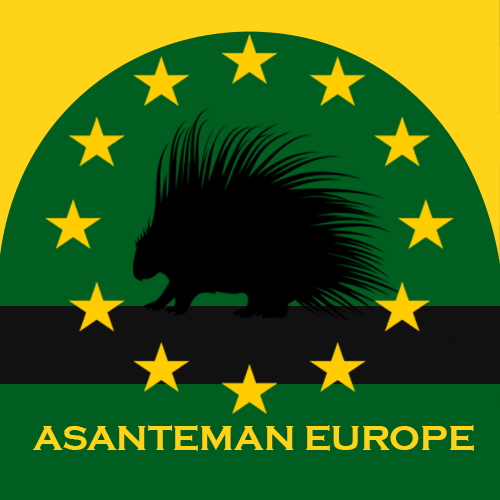THE REIGN OF NANA OSEI YAW AKOTO
( 1824 – 1834 )
Nana Osei Yaw Akoto succeeded his brother Nana Osei Tutu Kwame Asibe Bonsu. In January 1826, it came to his notice that the coastal states wanted to break away fro the Kingdom. He, therefore, decided to march to the coast and put a stop to their plan . But when he got there, he saw that there was no rebellion. In order to be sure that everything was calm, he remained there with his troops for seven months, but nobody raised a finger at him. He, therefore, decided to march his men to Accra to punish Ga,s for breaking their old alliance with the Asante Kingdom. An Akan proverb states that:” If you continue chasing a coward and don’t stop, you, at last, meet his manliness”, and that was exactly what happened to Nana Osei Yaw Akoto and his men. When the coastal states heard of the King,s intention, they all gathered courage and armed themselves to go and defend Ga’s. The coastal states forces consisted of Ga’s , Fantes, Denkyiras, Akyems, Akwapims, Akwamus, a nod soldiers called from the British West African states. The combined forces outnumbered that of the Asante forces.
The Asante forces were in two divisions, a half under Opoku Frefre, Asants Gyasehene and the other half under Nana Osei Yaw Akoto himself. A very fierce battle was fought at Dodowa. The Asante forces were defeated and they nearly lost the Golden Stool which was carried to the battlefield. Had it not be the fierce fight put up by Kontanasehene, Nana Antwi Panin and Dwabenhene, Nana Boateng, who went to recapture the stool, it would have been taken away by the coastal states. The defeat of the Asante Nation resulted in the separation of the coastal states from the Asante Kingdom. The war was the third British a nod Asante war. The Asante Kingdom was defeated. They also lost the documents on the coastal forts to the British and therefore the British became the owners of the forts. Payments of the rent on the forts to the Asante Kingdom was stopped and this left the Asante treasury virtually empty. After the war, a peace treaty was made between the Asante Kingdom on one side and the British and coastal states on the other side. The treaty demanded that the Asante Kingdom would not wage war on the coastal states for a period of six years. Asante was to pay 600 ounces of gold as security and if peace prevailed for the six years, the money would be returned to the Asante Kingdom untouched. The money was to, be deposited at the treasury in the Cape Coast Castle. In addition to the money, two royals were to be given to the British government as hostages to be sent abroad and educated. The two young men given as hostage were: Nkwantabisa and Ansa. The Asante Kingdom really honoured this treaty and therefore after six years, the money was returned to the Asante Kingdom intact and in the same wrapper used to wrap it. This behaviour of the British Government developed respect and confidence in the eyes of the Asante Kingdom for the British. The treaty was drawn during the time of Captain George MacClean. Though peace prevailed between the southern states a nod Asante, in Asante itself there was a civil war between Kumase and Dwaben state. The other Asante States went to help Kumase to quell down the rebellion. Nana Kwasi Boateng and his people fled from Dwaben to Akyem Abuakwa, where they were welcomed by Okyehene and given land to stay. They were there when Nana Osei Yaw Akoto was called to eternity in the year 1834.
